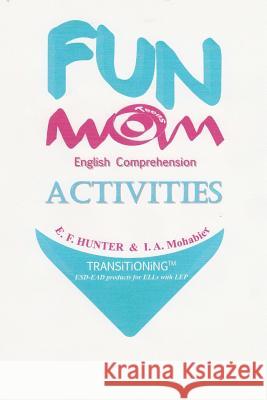FUN Teens English Comprehension Activities » książka
FUN Teens English Comprehension Activities
ISBN-13: 9781500420048 / Angielski / Miękka / 2014 / 84 str.
FUN Teens is fourth in the TRANSiTiONiNG Series of self-help books for English Speakers or English Language Learners with limited English proficiency. This book is part of a series of scholastic and academic development products for English Language Learners ELLs]. The activities in this series have been designed with a special focus on providing self-help educational products for ELLs with limited English proficiency LEP], which includes tweens, teens and those who have begun their first year of college. It offers the additional benefit of being written in a form that allows the learner to enlist the assistance of a 'facilitator': any Anglophone willing to help. The TRANSiTiONiNG Series is a motivational collection. This series sensitizes each learner to her or his choice of words by using situational vocabulary and occasionally inserting the colloquia -- common-speak word -- immediately following it. The indicator 'cs' precedes the colloquia. In this fourth book, the amount of colloquia indicators have been minimized to allow the learner to recall the higher level vocabulary learned in FUN Tweens. Additionally, icons have been included on each activity page. These icons are colorful and multi-dimensional to stimulate the learner's thinking. The TRANSiTiONiNG Series was created, developed, and market tested in many states in northern and southern China during a 3 to 10 year period. During these years, massive amounts of middle and high school as well as college students struggled to achieve enough English language skills to attend high schools and colleges in America and other western, English-speaking countries. The market testing and verification phase of this series enabled the authors to identify the most effective content for this series. The activities included in this series were proven to be the most enjoyable while moving participants from theatrically-based memorization of English toward communicative English for general classroom and standard tertiary interaction as well as the most effective for the scholastic-specific development of individual listening, speaking and instructional reading skills.
Zawartość książki może nie spełniać oczekiwań – reklamacje nie obejmują treści, która mogła nie być redakcyjnie ani merytorycznie opracowana.











